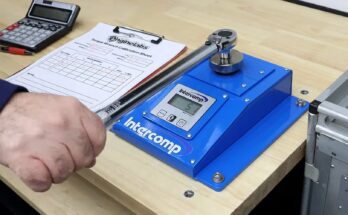For business owners, CLV is the most critical aspect, represents the total revenue earned from customers over time. It reflects product-market fit, brand loyalty, and recurring revenue from repeat customers. Thus, by focusing on CLV, businesses can achieve long-term, sustainable growth through better ROI and unit economics.
But the thing is, you cannot be closing renewals from existing customers when you have other stuff to do. Contract reviews, negotiations, and waiting for the legal team to approve contracts take time.
So, how do you cut out the human input from all these tedious, time-consuming activities? The Simple answer is to use contract automation software and streamline and automate contract management. Best of all, it will add hours back to your life, so that you can focus on what you’re good at — securing repeat customers.
New to contract management software? We’ve got five quick facts to get you started.
1. Self-serve contract workflow
In a typical non-self-serve workflow, a department representative requests a contract, finds and modifies a template, and then sends it back to legal for review. They send the approved version to the counterparty. Things get rolling with either party negotiating the agreement, sparking a back-and-forth via email. The days-long ordeal results in a signed hard copy or PDF saved to a shared drive. Be that as it may, this traditional method is inefficient and prone to errors. After all, your team can bypass legal and send an unapproved contract to save time.
In contrast, the self-serve contract workflow of contract management software allows departments to create, negotiate, and agree on contracts without relying heavily on in-house legal teams for input, especially for low-value and routine contracts. In this workflow, the legal team creates templates for various teams to use, sets up appropriate approval flows, and locks specific terms and fields to enable commercial teams to process contracts with minimal risk. Sales, finance, HR, and procurement teams can all benefit from self-serve contracts.
2. Automated contract process from start to finish
While most businesses use CRM and ERP software for the beginning and end stages of contract management, the steps in between are often done manually. Using contract management software, you can automate tasks like sending contracts to customers, notifying relevant parties about progress, collecting e-signatures, and storing signed contracts.
Additionally, contract management software can automate the details before and after a contract. This includes finding appropriate pricing models and activating benefits associated with a transaction. Automation also benefits legal professionals by drafting and tailoring contracts to meet specific jurisdictional needs and automating contract review processes.
3. Faster sign-offs
When you have contract management software, you can shorten sales cycles by using templates to draft contracts. With the delivery time shortened from weeks or days to seconds, your sales reps can close deals faster and potentially win more clients within a given time frame.
Moreover, emailing many versions of the contract for approval and waiting for responses can result in unnecessary delays and slow cash flow. Contract management software allows all parties to review and edit the contract live. In doing so, it accelerates approval cycles and payment transfers. Electronic signatures make it further seamless for both sides to sign.
4. No more missed deadlines
Missing crucial deadlines for some contracts can hurt a business’s revenue. For example, licensing agreements limit a company’s use of another party’s intellectual property for a specific duration. If the contract expires and the company continues to use the product, it can face liability risks. Conversely, if a company sets up auto-renewal and forgets about it, it may end up paying for a service it doesn’t need. As for companies that license out IP, they need to keep track of contract expiration dates to avoid loss of revenue.
Contract management software overcomes these problems by keeping a calendar, thus preventing missed deadlines and last-minute rushes. It also triggers task alerts and email reminders to ensure every contract gets the due attention and the right people get notified at the right time.
5. Data-driven, actionable insights
Reporting accurate information is vital to contract management as it helps improve the process and communicate the value it adds. With contract management software, you can track key metrics and KPIs in real time throughout the contract lifecycle. Interactive dashboards display a list of key metrics and KPIs for you to extract critical actionable insights from them. You can also click through to get a more granular look at the underlying data. As a result, you can reduce risk, increase efficiency, and optimize your CLV by making data-driven decisions.
Final Thoughts
Businesses rely on contracts for steady growth and stable cash flow. Hence, it is best to embrace digital solutions like contract management software to streamline the process, increase revenue, and save time for everyone involved in the contracting process.
Author Bio:
Qurat-ul-Ain Ghazali, aka Annie, is the growth manager at Contractbook and looks after all the organic channels. She has been with tech startups and scaleups for a couple of years with a B2B focus. You can find her socializing, traveling, indulging in extreme sports, and enjoying the local desserts when she is not working.



